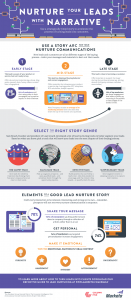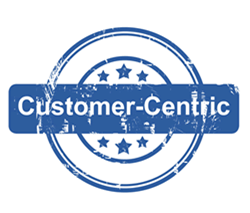Even though 87 percent of millennials believe learning and development in the workplace are significant, only 29 percent are satisfied with the career advancement opportunities available within their workplace. However, employee training is becoming increasingly important, and companies are recognizing its worth.
As a result, the total spending on employee training globally reached $ 370.3 billion in 2019. That means that an average of $ 1,286 was invested per learner throughout that year, and those numbers will increase in the future.
For instance, training providers, including management training firms, will experience a continuous increase in revenue, which is expected to reach approximately $ 14.2 billion by 2023.
Employee development and training is a growing industry that demands top leaders’ and HR professionals’ attention. It is why we decided to explore the learning trends.
Here is what we found out.

What Should You Know About Learning at Work?
According to Guide2Research, 39 percent of employers feel that the potential for future growth is the principal source of employee satisfaction. That corresponds with the fact that 94 percent of workers would stay longer in companies willing to invest in their professional development.
Although various abilities are significant for growth, learning and development professionals prioritized leadership and management, creative problem solving and design thinking, and communication in the last year.
But these are not the only skills that appear at the top when considering what employees should improve or develop this year. Creativity, persuasion, collaboration, adaptability, and emotional intelligence are the traits workers should possess to reach their full potential, be efficient and productive.
These stats indicate that those companies that invest in employee development can achieve an intense competitive edge by offering career advancement opportunities and learning at work.
However, 49 percent of talent developers agreed that getting managers to prioritize learning was their number one challenge in 2020. Other difficulties they experienced are creating a culture of learning and increasing employee engagement in learning.
Leaders and HR professionals that implement career growth opportunities will attract more candidates and keep the current ones. If you want to achieve that, you should adopt the learning trends and nurture the best skills for 2021.
Tips on How to Adopt the Learning Trends and Nurture Employee Development
-
Emphasize Adaptability
Harvard Business Review marked adaptability as the new competitive advantage a long time before the pandemic of COVID-19 forced us to align with the new way of life. But after the restrictive measures and social distancing brought remote work, embracing changes and identifying novel strategies became essential for the business continuum.
Regardless of circumstances, era, and workplace, adaptability is a favorable trait because it helps humans adjust quickly to new technologies, locations, or people. It is a characteristic that’s highly beneficial in business as it indicates open-mindedness, resilience, and innovation.
Hence, HR professionals should nurture this soft skill among employees and teach them how to be better prepared for changes. Moreover, they should also implement programs or workshops that provide workers with techniques to become more solution-oriented in transformative times.
-
Variety of Interests
Even though being an expert in a particular field is beneficial, people often forget that having an array of interests is just as advantageous. Employers can encourage employees to nurture their curiosity and expand knowledge across different niches instead of continuously focusing on one.
That isn’t to say workers should neglect their expertise, but they should also enrich their personal and professional lives with various abilities, data, and activities. By becoming knowledgeable in different fields, employees can take on more tasks and improve their careers.
-
Time Management
The average person typically tries 13 different methods for managing their time. However, if people spend 10-12 minutes planning their day, they’ll save up to 2 hours that would have otherwise gone waste.
It is why HR recruiters should invest more into efficient time management and skill development among employees. Knowing how to use their hours effectively will help workers make the best of every task and develop schedules that keep their learning on track.
-
Embrace the Novelty
Not many employers know it, but encouraging employees to get out of the comfort zone and embrace the untested, new, and unusual can make them more innovative. It is why HR professionals should provide workers with platforms for improving creativity, critical thinking, and brainstorming novel ideas.
Learning at work shouldn’t focus on typical training and workshops only. Instead, employers and HR professionals should encourage developing soft skills just as the technical ones.
Hence, emphasize adaptability, resilience, efficient time management, and provide workers with opportunities to develop various interests and get out of their comfort zone.
Business & Finance Articles on Business 2 Community
(106)






